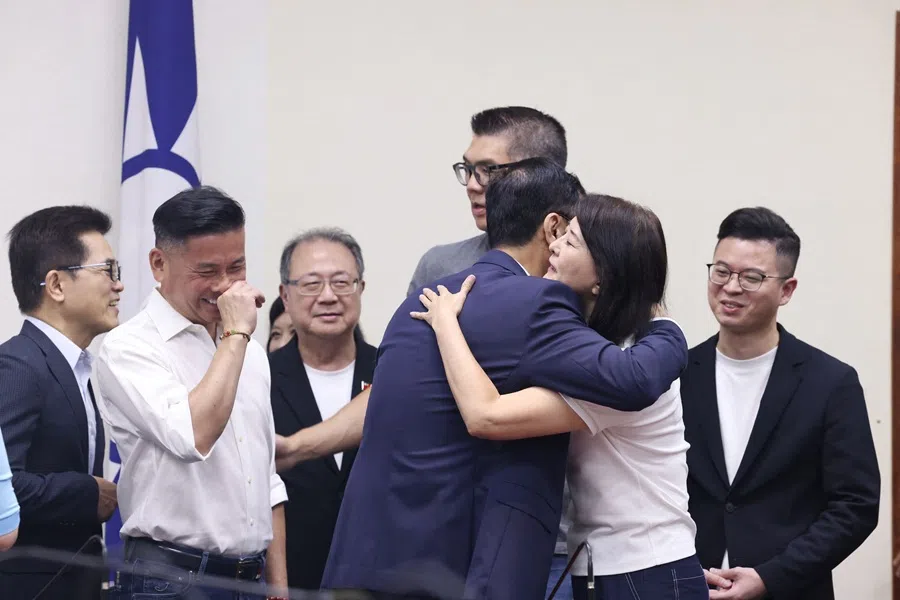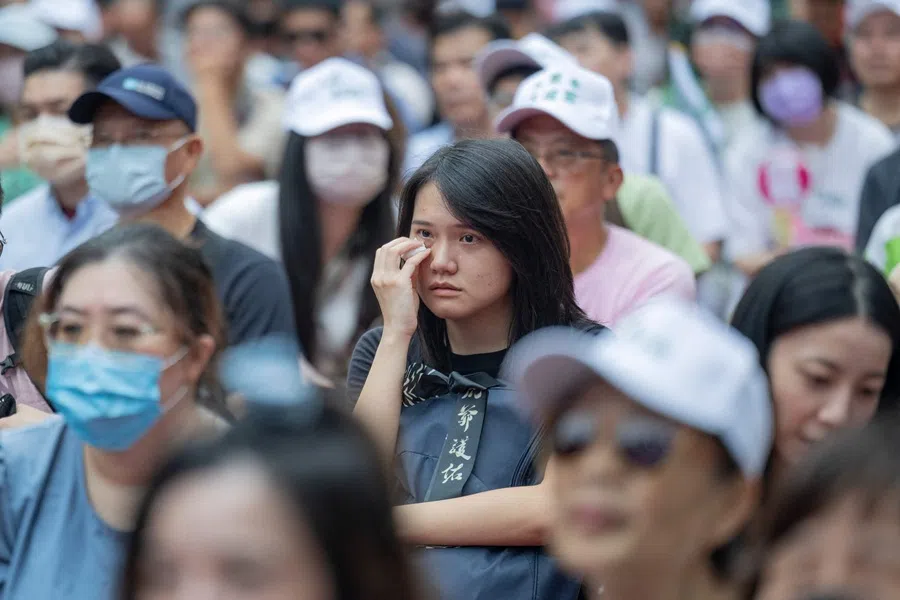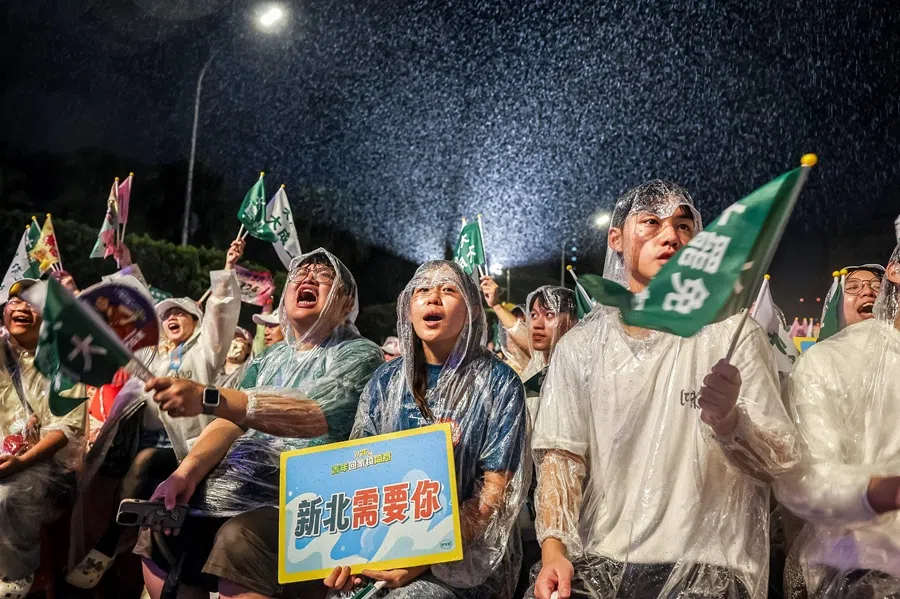Taiwan’s Great Recall: A grassroots movement meets political reality
The outcome of Taiwan’s recall vote to decide whether to recall Kuomintang representatives was unexpectedly decisive: all 24 KMT incumbents survived the challenge, marking a resounding victory for the opposition party. This result signals looming difficulties for the ruling Democratic Progressive Party but could pave the way for a more robust civil society, says academic Ho Ming-sho.

On 26 July, voters in 24 legislative districts cast their ballots to decide whether to recall their Kuomintang (KMT) representatives. Taiwan’s Legislative Yuan consists of 113 seats, of which 73 are elected from single-member districts. The so-called “Great Recall” campaign was unprecedented in scope, targeting more than one-fifth of the nation’s lawmakers. Yet the outcome was unexpectedly decisive: all 24 KMT incumbents survived the challenge, marking a resounding victory for the opposition party.
This result signalled looming difficulties for the ruling Democratic Progressive Party (DPP), whose inconsistent and ineffectual responses not only frustrated the citizen-initiated movement but also appeared to vindicate the combative tactics employed by opposition legislators. As President Lai Ching-te’s term continues until May 2028, Taiwan’s political landscape is likely to face escalating partisan confrontation, potentially jeopardising his prospects for reelection.
The success of these grassroots efforts in securing citizen endorsements during the first two signature stages surprised many observers...
Grassroots anger directed at opposition lawmakers
Since the lifting of martial law in 1987, Taiwan has witnessed the flourishing of a vibrant civil society whose periodic surges of citizen mobilisation have significantly altered the island’s political trajectory. The 1990 Wild Lily Movement — a weeklong student sit-in — accelerated Taiwan’s transition toward democracy. Two decades later, the 2014 Sunflower Movement, in which youth activists occupied the legislature for weeks, resisted deepening economic dependence on mainland China and paved the way for the DPP’s return to power in 2016.
The 2024 recall campaign originated from the so-called Bluebird Action and reflected widespread public anger toward lawmakers from the KMT and its ally, the Taiwan People’s Party. By using their combined majority, these opposition legislators had jointly advanced a series of controversial bills aimed at expanding the legislature’s investigative powers, redistributing fiscal resources, weakening the Constitutional Court, and imposing significant budget cuts, including those on military spending.

The recall campaign officially commenced in February 2025, the earliest legally permitted date for organised efforts to unseat elected officials within their first year in office.
Initially, the grassroots-led initiative targeted all 36 KMT district legislators and one KMT-aligned independent. In April, 35 recall proposals cleared the first threshold — signatures from 1% of the local electorate — while only two proposals, both from traditionally pro-KMT offshore islands, failed to qualify. In June, 31 of these proposals passed the second-stage requirement of 10% signatures. Consequently, 24 recall elections were scheduled for 26 July, with the remaining seven set for 23 August.
... the recall drive was energised by the active participation of female volunteers, whose interpersonal networks and communication skills proved instrumental in broadening support across diverse social circles.
Taiwan’s relentless deepening of direct democracy
The success of these grassroots efforts in securing citizen endorsements during the first two signature stages surprised many observers, particularly because several campaigns unfolded in longstanding “deep Blue” districts where KMT incumbents had faced little serious competition for years, if not decades.
Notably, the recall drive was energised by the active participation of female volunteers, whose interpersonal networks and communication skills proved instrumental in broadening support across diverse social circles. In post-#MeToo Taiwan, this activism also reflected an emergent feminist sensibility.
A widely circulated campaign video epitomised this perspective, casting KMT legislators as philandering “bad boys” who betrayed not only their partners but also their constituencies. Another notable feature was the campaign’s emphasis on the theme of “opposing communism to protect Taiwan”, which brought together an unlikely alliance of Taiwan independence advocates and Republic of China loyalists. This framing was designed to appeal to disillusioned KMT supporters who felt the party had deviated from its historic anti-communist stance.

In many ways, the recall campaign echoed the enduring political legacy of the Sunflower Movement. Citizens increasingly viewed representative democracy as insufficient and sought alternative avenues of direct participation.
This climate of mobilisation prompted significant institutional changes: the referendum law was liberalised in 2017, leading to ten national referendums in 2018 and another four in 2021. Similarly, thresholds for initiating and validating recall elections were lowered in 2016, creating new opportunities for strategic use by competing political camps.
In recent years, high-profile recalls included Kaohsiung mayor Han Kuo-yu (KMT) in 2020 and legislator Chen Po-wei (pro-DPP) in 2021. In short, the great recall election reflected Taiwan’s relentless deepening of direct democracy.
... in the final stretch before election day, their superior financial resources became evident, as campaign posters and advertisements dominated the urban landscape, dwarfing the modest efforts of the grassroots recall groups.
Entrenched party politics put a spanner in the works
However, this passionate and idealistic citizens’ movement ultimately ran aground against the realities of entrenched party politics.
The KMT’s counter-strategy of organising rival recall campaigns backfired when many of its operatives were implicated in mass forgery scandals. Yet the party managed to push through a cash-handout bill granting NT$10,000 per person shortly before the vote — a time-tested tactic for appealing to the broader electorate.
Individual lawmakers whose political careers were at risk also mobilised aggressively; in the final stretch before election day, their superior financial resources became evident, as campaign posters and advertisements dominated the urban landscape, dwarfing the modest efforts of the grassroots recall groups.
The DPP’s missteps
The DPP, which stood to benefit from the recall campaign, appeared paralysed by indecision driven by competing agendas. As the ruling party, it was reluctant to appear too closely aligned with a citizen movement targeting its main political rival. Any policy missteps or unpopular measures could easily be framed as government negligence, further lending credence to the KMT’s criticisms.
At the same time, remaining aloof was not an option, as many recall activists were fervent DPP supporters. Ideally, the party could have offered quiet assistance, avoiding provocation while still lending support. In the end, however, the DPP took the opposite approach.
President Lai launched ten campaign speeches to mobilise DPP supporters, but their length and overt partisanship failed to attract broad interest and instead allowed the KMT to portray the recall as partisan warfare. Individual DPP politicians, even those who backed the recalls, struggled to bring out their supporters, since the elections centred not on them but on unseating KMT legislators.
What became decisive was access to extensive constituency networks, ample financial resources and policy tools capable of mobilising politically inattentive voters — all of which lay firmly in the hands of career politicians.

The shift from signature collection to a full-scale election campaign posed an unparalleled challenge for citizen movements, especially once the contest broadened to include the entire electorate. Thrust onto a larger arena, creative tactics that had resonated with conscientious supporters proved no longer sufficient. What became decisive was access to extensive constituency networks, ample financial resources and policy tools capable of mobilising politically inattentive voters — all of which lay firmly in the hands of career politicians.
Under such conditions, efforts to unseat entrenched incumbents faced formidable obstacles. In this sense, the failure of Taiwan’s great recall campaign was nevertheless a heroic one: countless committed activists sought to punch above their weight. Over the long term, this painful defeat may yet spark reflection and learning, paving the way for a more robust civil society.





